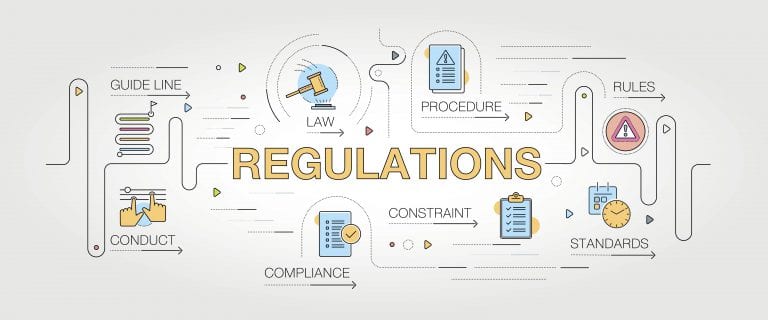By Angela Morris and Sara Komen
May 2008
This year, 2008, is a major political year. Hundreds of call centers are making millions of phone calls for “get out the vote,” voter IDs, persuasion calls, recorded messages (robo calls), and polls and surveys of all kinds. As political calls and campaign budgets influx into the market, small and large call centers are grappling with what many consider to be formidable demands from campaigns – demands which savvy call centers know will be unsuccessful, or worse, may violate laws. On the plus side, political calls are simple, and call center agents can move quickly from one type of call to the next.
As one of the most cost-effective and efficient means of reaching a vast audience, political contact from sophisticated call centers means that campaigns can reach massive databases of people. Call centers finesse political messages that inform and inspire.
On the other hand, Americans are getting increasingly frustrated with the quantity, timing, and potentially harassing nature of political calls. Some voters report that they get four, five, or more calls per day, sometimes wasting precious time with messages left on voicemail, and others tying up phone lines with “robocalls” that the voter can’t disconnect. Then there are pushy political surveyors that won’t take “no” for an answer. At a time when voters are all but rebelling against the flood of political calls and with requests for laws banning or severely restricting political calling, the call center industry needs to use common sense in balancing consumers’ privacy needs with political candidates’ need to be heard.
Call Center Challenges: Many political campaigns compensate call centers on a “per complete” basis. The typical definition of a “complete” is that a message is delivered or a contact is made. In this scenario, the call center’s compensation is driven by the highest productivity possible, and many call centers are caught in a situation where they must run their dialers very aggressively and at times cut corners (causing quality concerns) to ensure that the work is profitable. Call centers face the common request to run through calling lists many times in one day. It is very common for the political campaigns to distribute the lists in a hand-to-mouth manner, and this makes it very difficult for the call centers to hit their expected completed calls and at the same time treat the list with respect.
Planning and adequate scheduling are often compromised, as some political campaigns, facing sharp ebbs and flows in donor contributions, make eleventh hour decisions to cut programs, only to want them to ramp up later on a moment’s notice after unexpected donor funding arrives. If a call center has planned and built a schedule, staffed, and committed resources to thousands of hours for a campaign which is suddenly cancelled, it is unlikely that an eleventh hour call to restart that program later will result in the call center’s ability to achieve the hours that the campaign needed. In such cases, the political campaign may be unknowingly forcing the call center to simply bring in “warm bodies” to perform the political work, and the quality of the message the voter hears cannot be as persuasive as if it had been delivered by the call center’s experienced workforce. Even more likely, the call center has accepted other programs, and the campaign will be forced to switch vendors, placing its message in the hands of an unskilled, novice, or unscrupulous call center that may not understand the regulations that apply to political calls, nor the art of message delivery.
Moreover, some political campaigns waste and discard invaluable call center management advice. Call centers shape and effectively deliver millions of diverse messages every day for assorted industries and interests of every type and form. This is what they do for a living – not just during an election cycle – and their sales and people persuasion skills are amazing. Too often political campaigns fail to appreciate and tap into these resources.
Another issue that must be resolved is that far too many political campaigns misunderstand applicable laws, or they often urge call centers to abridge them. Professional, experienced call centers, who ordinarily have in-house compliance attorneys, are there to assist operations and the campaign; they can translate complicated laws. Campaign staff understand election laws, but rarely understand outbound calling compliance issues. Also, they seldom recognize that call centers have a stake in every campaign running in their call center, well beyond being paid. Call centers themselves can be held liable when laws pertinent to the calls streaming from their facilities are broken, as recent rulings by the FCC and FTC have proven. If a call center burns through a database handed to it at the last minute, forced to abandon 5 percent, 10 percent, or even 20 percent or more of its calls, it’s only a matter of time before a consumer is going to feel harassed and abused. Then they will pick up their phone, calling and complaining to regulators and law enforcement. If a 3 percent abandonment rate may not strictly apply to a political program, aggressive calling patterns deemed by regulators as having “intent to harass or abuse” may.
Coast-to-Coast Myths: Aside from common concerns that experienced and legitimate call centers routinely encounter, here are some common myths:
1) Political calls are exempt from all telemarketing regulations. False. Take calling cell phones, for instance. The FCC’s Telephone Consumer Protection Act (TCPA) bars any automated calls to cell phones and contains monetary and other penalties for violation of this law. Would you want your candidate and campaign tagged by the FCC as a law violator?
2) Automated calls (robocalls), prerecorded voice, or artificial voice messages for political campaigning purposes are legal in all states. False. Some states have banned them outright or require that such calls be introduced to the called party by a live operator, who must gain the called party’s permission to take the call. Similarly, some state laws may not ban the prerecorded messages themselves, but may require that the autodialer they originate from be registered with the state – not an easy or quick procedure – constituting a record that would likely be subject to public disclosure.
3) State monitoring and call recording laws do not apply to political calling. False. These laws come from state wiretapping and privacy laws, some of which, if violated, carry criminal penalties. Every call, including political calling, is subject to these laws, which must be researched and applied to calling into each state. State wiretapping laws vary by state.
4) A DNC Registry for political calling is not on the horizon. False. Bills abound in a number of states for their own political DNC registries.
5) If you follow the federal rules, then you comply with the state rules as well. False. State laws can apply. For instance, Alabama’s autodialer laws expressly apply to political calls. AL § 5-63-204 (a) says that it is unlawful for any person “to use a telephone. . .soliciting information, gathering data, or for any other purpose in connection with a political campaign when such use involves an automated system for the selection and dialing of telephone numbers and the playing of recorded messages when a message is completed to the called number.”
These are the facts and some of the myths. Many laws do apply to political calls. Call centers and political campaigns that don’t follow them risk fines, criminal prosecution, and the inevitable loss of the client’s election or cause. Campaigns that press call centers to skirt applicable laws also risk being turned down by the very call center that can make the campaign a success. Professional call centers want to help political clients rock the vote, not sock the voter.
Angela Morris is president and founder of Quality Contact Solutions, a telemanagement services company with experience in inbound, outbound, and e-contact service strategies. To contact Angela, please call 402-210-2962 or angela.morris@qualitycontactsolutions.com
Sara Komen is corporate counsel and compliance officer for Timberline Total Solutions, an Omaha, Nebraska-based contact center providing inbound and outbound support for a broad spectrum of clients in a variety of industries, and an array of other contact center services. To contact Timberline, please call 877-575-2255, or email skomen@timberlinesolutions.com.








